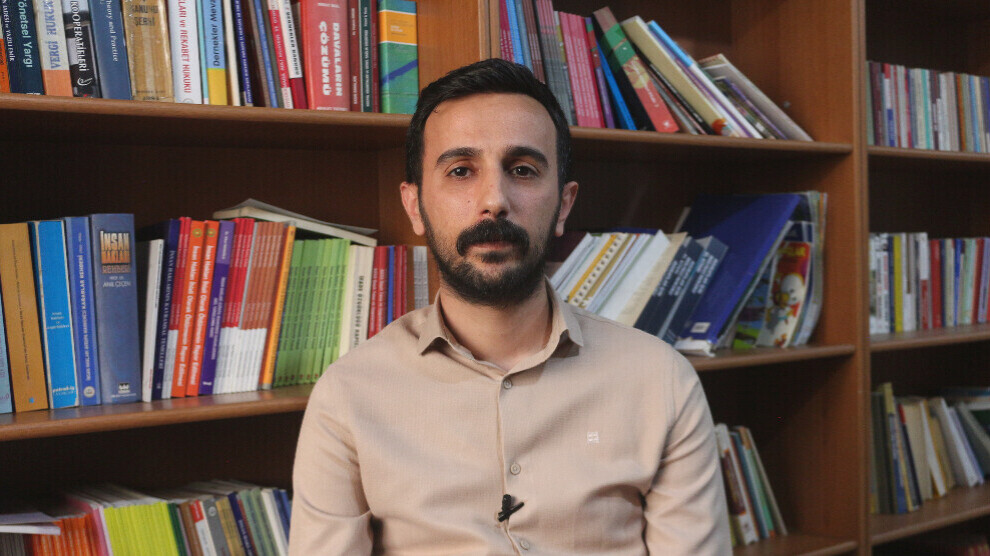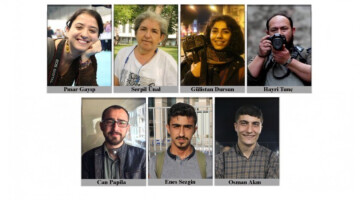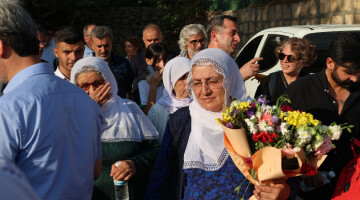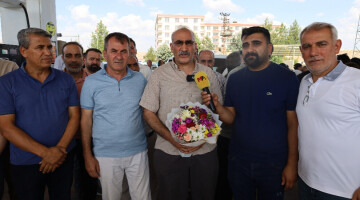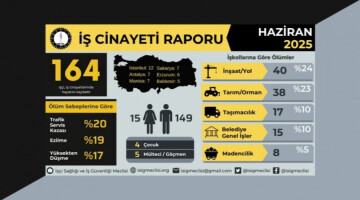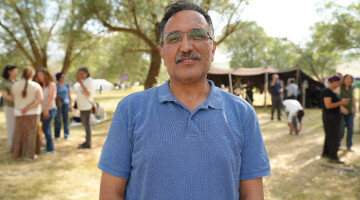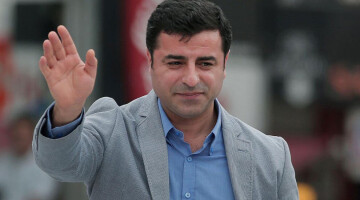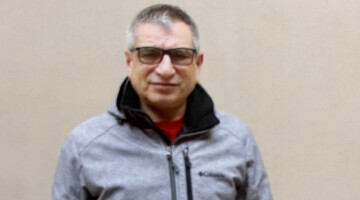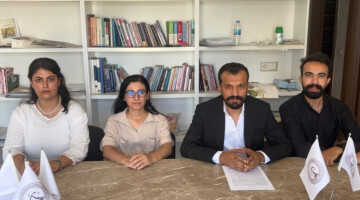Seriously ill political prisoners in Turkish prisons are systematically denied release. They only come out of prison dying or dead. According to statistics from the Human Rights Association (IHD), there are currently 1,517 ill prisoners in custody, of which 651 prisoners are considered seriously ill.
Prison conditions make people ill
The lawyer and co-spokesperson of the Prison Commission of the IHD, Yusuf Erdoğan, spoke to ANF about the situation in prisons. He said: "One of the biggest problems we encountered in our work on ill prisoners is that people become ill due to the conditions in prisons. For some prisoners, their illness progresses during their time in prison due to pre-existing conditions. But even prisoners who are admitted as healthy have to struggle with illnesses due to the conditions in prison."
Forensic Medicine Institute prevents release of those unfit for detention
Yusuf Erdoğan said that both prisoners and their relatives have repeatedly tried to take legal action against the many violations of rights in prisons: "There are many problems for ill prisoners, especially when they are transferred to hospital. We receive complaints that examinations are carried out in handcuffs when the prisoners are transferred to hospitals and that there are problems with the supply of medicine to ill prisoners. Above all, there is the problem that ill prisoners who can no longer care for themselves are not released based on reports from the Forensic Medicine Institute (ATK). This has been a huge problem for a long time. We repeatedly point out this situation in our reports. Ill prisoners are kept in prison despite hospitals determining that they are unfit for detention based on reports from the Forensic Medicine Institute. This represents a violation of the right to life, especially in the case of seriously ill prisoners. The role of the Forensic Medicine Institute should be analyzed. This institute seems to be the sole decision-making authority when it comes to ill prisoners. Ill prisoners die shortly after the institute certifies that they are fit for detention. We are constantly confronted with the problem of the lack of independence and impartiality of the Institute of Forensic Medicine. We encounter many problems when reporting ill prisoners to the institute. Sometimes prisoners are not released even though the Institute of Forensic Medicine has issued a corresponding report. This is due to Law No. 5275 on the execution of sentences and security measures. If someone is a political prisoner and the Institute of Forensic Medicine certifies that they are fit for detention, the prosecutor's office still makes the final decision. There is a sentence in Law No. 5275 that states that the prosecution authority must check, through the prosecutor's office, whether the person poses a threat to public safety. This also applies if there is a report that the person cannot survive on his own in prison. If the prosecution authority says that there is a threat to public safety despite the Institute of Forensic Medicine's report that he is fit for detention, the prosecutor can take the initiative and prevent the prisoner from being released."
“What is being done to old and sick prisoners is torture”
Erdoğan spoke about various recent cases: "In Van, 81-year-old Makbule Özer was sent back to prison because a second forensic report certified that she was fit to stay in prison. This was done despite the fact that the first report stated that she was unfit for detention. Then there is the case of Abdulalim Kaya. Although he is also very old and has many illnesses, the Forensic Institute does not say that he cannot stay in prison. It is necessary to address this issue. Human rights organizations must make their stance on the situation of ill prisoners clear. The way ill prisoners are treated also reveals double standards. Recently, the President of the Republic was authorized to draft a law on ill prisoners. Release decisions have been made for many ill prisoners. While we human rights organizations find this positive, we would also like to point out the following. Although we have approached the Ministry of Justice in the past and pointed out that the condition of some ill prisoners is critical, release decisions have been made recently, especially for some prisoners linked to the 28 February (1997) coup attempt. However, thousands of ill prisoners in critical condition are still being held in prisons. The authorities must stop applying double standards here."
"More and more prisoners are simply being left to die"
Erdoğan said: "We have the example of Mehmet Emin Özkan. His release was decided after long efforts. In fact, the state either releases ill prisoners when there is very little time left before their regular release, or it does not release them and lets them die in custody. Yes, the prisoners are left to die in custody. This is a form of mistreatment and prolonged torture. Because we see in our visits that they are not really being treated. Especially during our visits to the so-called R-type prisons, which are considered prisons where ill prisoners are treated, we see that the condition of ill prisoners is not very good. Ill prisoners are not even treated there. This is because a political approach is being followed here and not a humanitarian and conscientious approach. The current situation of ill prisoners is a condition where they are left to die. This situation is getting worse and worse."

